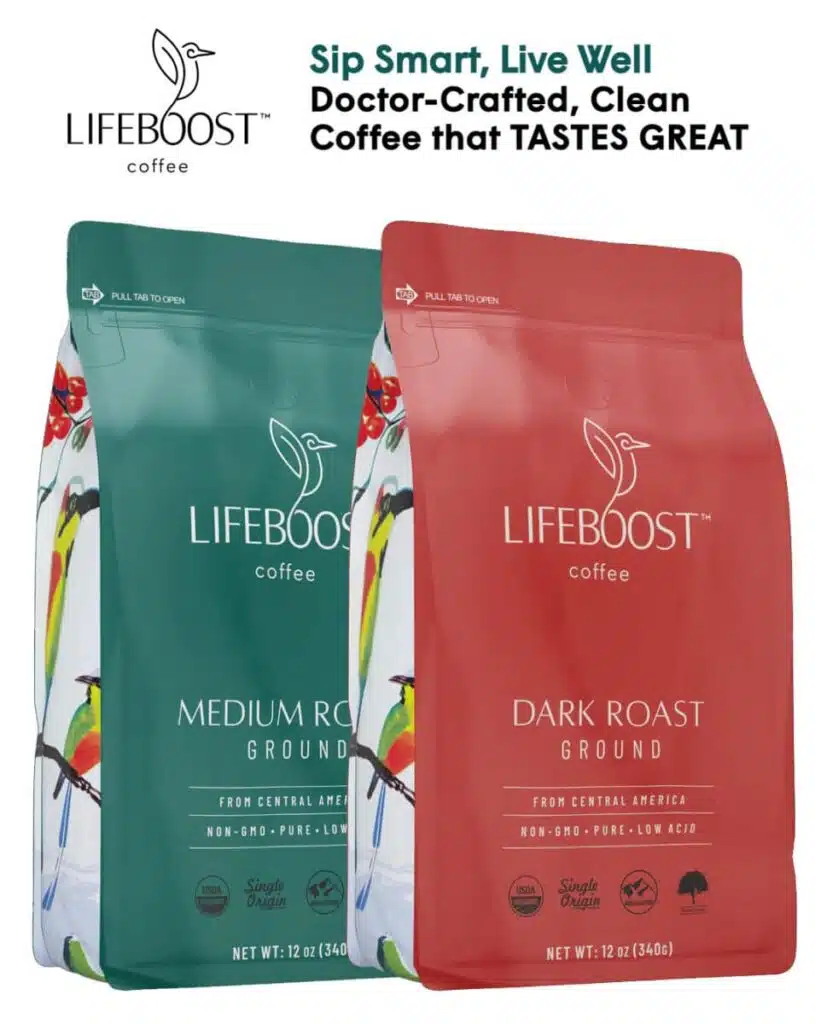Filter coffee has become a beloved beverage for many, captivating taste buds with its rich flavors and aromatic essence. Originating from traditional brewing methods, filter coffee offers a unique experience that stands apart from other coffee styles. As you embark on this exploration, you’ll uncover the science behind brewing, the art of selecting the right beans, and tips for perfecting your cup. By understanding what makes filter coffee special, you can fully appreciate why this delightful drink deserves a spot in your daily routine.
Introduction to Filter Coffee
Filter coffee, a beloved brewing method cherished by coffee aficionados worldwide, brings out the rich and aromatic flavors of freshly ground beans. This process involves pouring hot water over coffee grounds, allowing gravity to do the work of extracting the delicious essence into your cup.
- Simplicity: The straightforward process of making filter coffee allows for an easy and enjoyable brewing experience.
- Versatility: You can choose from various coffee beans, roast levels, and even add different spices or flavors to customize your cup.
- Richness: Unlike some brewing methods, filter coffee often delivers a fuller-bodied cup while maintaining a smooth finish.
What sets filter coffee apart is the unique filter itself, usually made from metal or paper. This filter captures the coffee oils, resulting in a cleaner drink compared to other brewing styles.
To sum up, filter coffee is more than just a morning routine; it’s a delightful experience, offering distinct flavors and customizable options to suit every palate. So, whether you’re a seasoned barista or a curious newcomer, it’s time to dive into the world of filter coffee and discover the joy it brings!
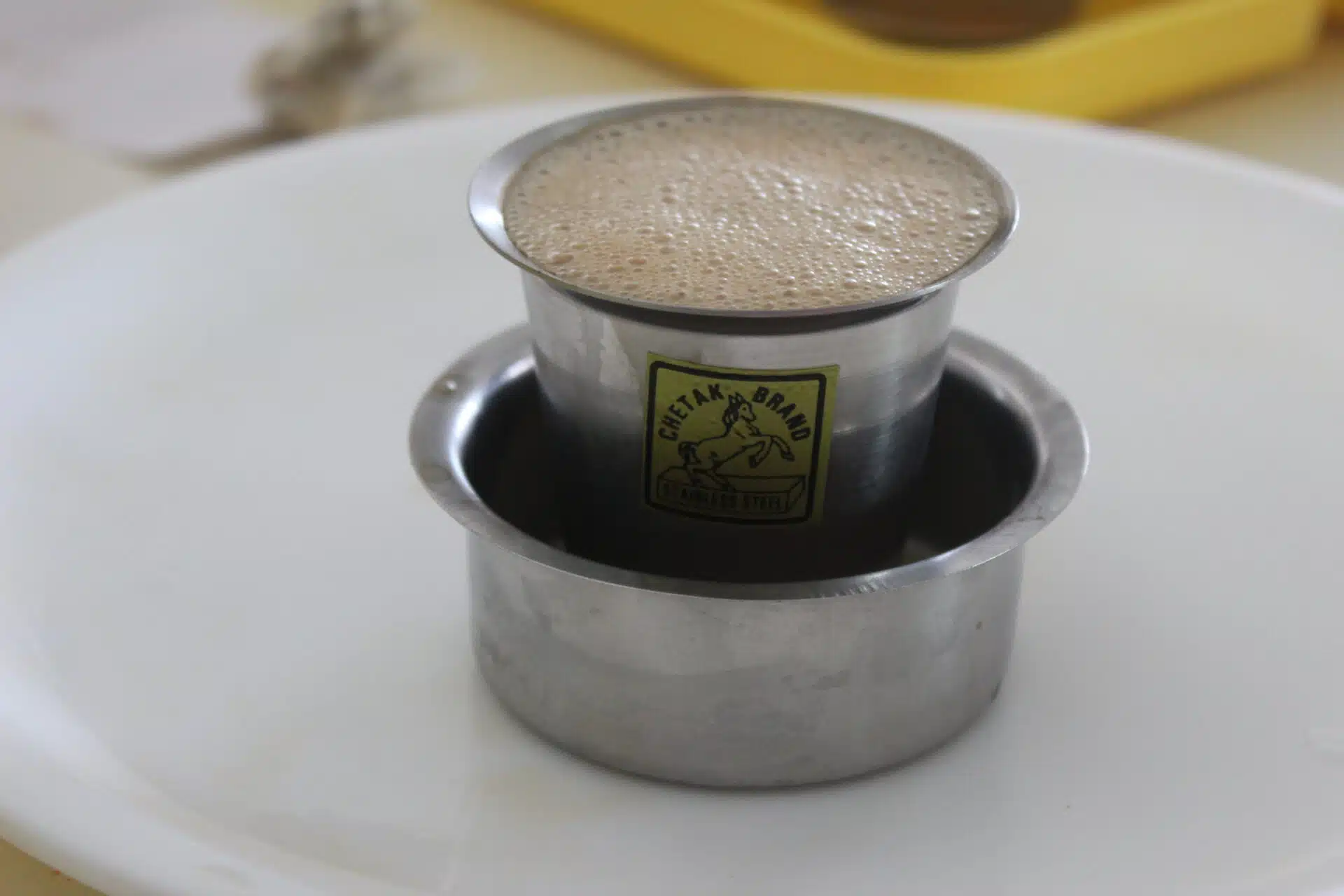
History of Filter Coffee
Filter coffee boasts a fascinating history that spans centuries and continents. Its origins trace back to ancient civilizations, evolving significantly along the way.
Here are some key milestones in the journey of filter coffee:
- Early Beginnings: The practice of brewing coffee using hot water appeared as early as the 15th century in the Arabian Peninsula. While the method differed from today’s filter technologies, it laid the groundwork for future innovations.
- French Influence: In the 19th century, France introduced the first true coffee filter system with the invention of the drip coffee maker. This innovation allowed hot water to extract flavors from coffee grounds efficiently, creating a smoother taste profile.
- Rise of Electric Drip Coffee Makers: The 1970s saw a boom in home coffee brewing with the introduction of electric drip coffee makers. This convenience made filter coffee accessible to countless households worldwide.
- Global Popularity: Today, filter coffee has gained immense popularity across different cultures, from the classic American drip coffee to the South Indian degree coffee. Each region contributes unique flavors and brewing methods, showcasing the versatility of filter coffee.
In summary, filter coffee’s rich history reflects its evolution from ancient brewing methods to modern convenience. Now, more than ever, it invites coffee lovers to explore its various styles and flavors.
What Makes Filter Coffee Unique?
Filter coffee stands out for several reasons that enhance both its flavor and brewing process. Here’s what sets it apart:
- Brewing Process: Unlike other methods, filter coffee utilizes a slow drip process, allowing the water to extract flavors evenly from the coffee grounds. This results in a rich, smooth beverage that many enthusiasts cherish.
- Flavor Clarity: The filtration method captures the oils and sediment that can muddy other brewing techniques. Consequently, filter coffee delivers a clean taste, allowing distinct flavor notes to shine through. You can savor different undertones, from fruity to nutty, based on the beans you select.
- Customizable Strength: You have optimal control over the strength of your brew. By adjusting the coffee-to-water ratio, you can create a cup that fits your personal preference—whether that’s strong and bold or lighter and smoother.
- Versatility: Filter coffee accommodates various coffee grounds and grind sizes. You can experiment with coarseness to find your perfect brew; for example, using a medium grind often yields the best results.
In essence, the unique aspects of filter coffee come together to create an enjoyable and personalized coffee experience that invites exploration and refinement. So, why not dive in and discover your ideal cup today?
The Science Behind Brewing Filter Coffee
Brewing filter coffee isn’t just about following a recipe; it’s a delicate dance of chemistry that brings out the rich flavors in each cup. Here’s a closer look at the science behind this beloved brewing method.
- Water Temperature: The ideal brewing temperature is between 195°F to 205°F (90°C to 96°C). Water that’s too hot can extract bitter compounds, while too cool water may not extract enough flavor.
- Brewing Time: Typically, the brewing time ranges from 4 to 6 minutes for filter coffee. This duration allows for optimal extraction of oils and flavors from the coffee grounds.
- Coffee-to-Water Ratio: A good starting point is using 1:15 ratio of coffee to water. For instance, 15 grams of coffee for every 225 grams of water will yield a balanced brew.
- Grind Size: The grind size plays a critical role. For filter coffee, a medium grind works best, allowing for an even extraction while preventing over-extraction.
Comparison Table: Brewing Variables
| Variable | Ideal Range | Impact on Flavor |
|---|---|---|
| Water Temp | 195°F to 205°F | Avoids bitterness, enhances aroma |
| Brewing Time | 4 to 6 minutes | Balances extraction of flavors |
| Coffee Ratio | 1:15 (coffee to water) | Ensures proper strength |
| Grind Size | Medium | Promotes even extraction |
Understanding these elements helps you make informed adjustments and perfect your filter coffee. Happy brewing!
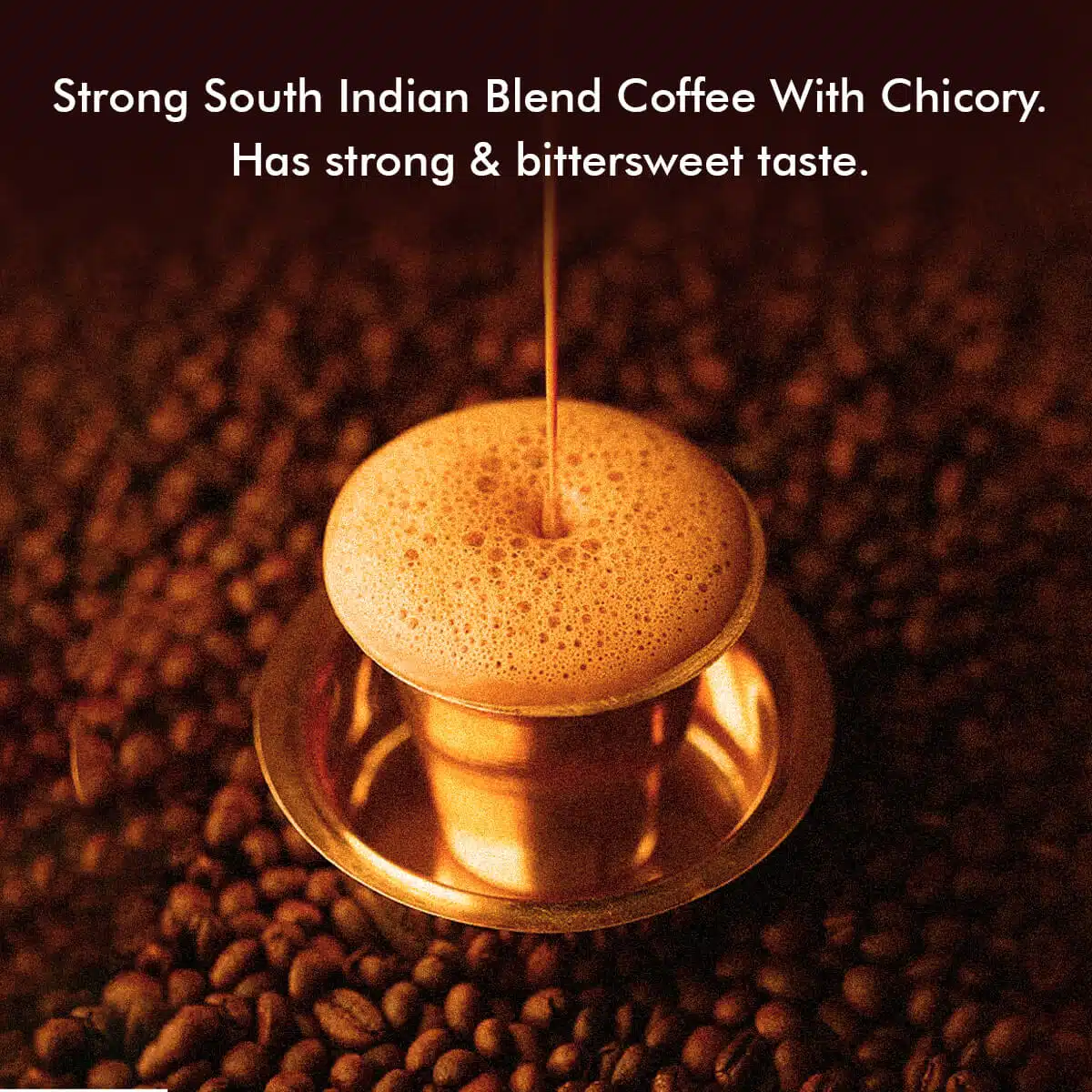
Different Brewing Methods
When it comes to making filter coffee, several brewing methods can enhance flavor and aroma, allowing you to enjoy a cup that’s tailor-made to your preferences. Here are some popular methods to consider:
1. Pour-Over
- Description: Involves pouring hot water over coffee grounds in a filter.
- Pros: Provides control over brew time and extraction; versatile in adjusting grind size.
- Cons: Requires more technique and practice.
2. Drip Coffee Maker
- Description: An automated process that brews coffee by dripping hot water over coffee grounds.
- Pros: Convenient and efficient for brewing multiple cups at once.
- Cons: Less control over brewing variables compared to pour-over.
3. French Press
- Description: Coffee steeped in hot water, then separated by pressing down a metal or plastic plunger.
- Pros: Rich flavor due to full immersion of grounds; no paper filter needed, allowing oils into the cup.
- Cons: Can be gritty if grounds are not properly filtered.
4. Aeropress
- Description: A portable and quick brewing method that uses air pressure to push hot water through coffee grounds.
- Pros: Produces a clean, strong flavor; easy to clean.
- Cons: Limited to a single serving at a time.
Comparison Table
| Method | Control | Flavor Profile | Convenience |
|---|---|---|---|
| Pour-Over | High | Bright, complex | Medium |
| Drip Coffee | Medium | Balanced | High |
| French Press | Low | Rich, full-bodied | Medium |
| Aeropress | High | Strong, clean | High |
Experimenting with these techniques will allow you to discover what suits your taste. Each method brings a unique flair to filter coffee, so have fun trying them all!
Choosing the Right Coffee Beans
Selecting the perfect coffee beans is crucial for brewing an exceptional filter coffee. The flavor, aroma, and overall experience hinge on your bean choice. Let’s dive into some essential tips to guide you in picking the right coffee beans:
- Bean Type: Start by understanding the two main varieties: Arabica and Robusta. Arabica boasts a sweet, complex flavor, while Robusta offers a stronger, bolder taste. For a smoother filter coffee, opt for Arabica.
- Freshness: Look for freshly roasted beans. Ideally, purchase beans that have been roasted within the last two weeks. Freshness makes a significant difference in flavor.
- Roast Level: Choose a roast level that complements your taste. Lighter roasts allow fruity and floral notes to shine, while medium to dark roasts emphasize chocolatey and nutty flavors.
- Origin: Explore beans from different regions. For instance, Ethiopian beans often feature bright and fruity tones, while Colombian coffee tends to be well-balanced with a nutty finish.
By considering these factors, you’ll be well-equipped to select the right coffee beans for your filter coffee. Remember, the right beans don’t just enhance the taste; they can transform your coffee experience from ordinary to extraordinary!
Tips for Perfecting Your Filter Coffee
Making the perfect cup of filter coffee requires attention to detail and a bit of practice. Follow these tips to elevate your brewing game!
- Start with Quality Beans: Always choose fresh, high-quality coffee beans. Seek out those labeled as specialty grade, as they have greater flavor complexity.
- Grind Just Before Brewing: For the best flavor, grind your coffee beans right before brewing. A medium grind works best for filter coffee to allow optimal extraction without over-extraction.
- Water Temperature Matters: Aim for water between 195°F and 205°F. Too hot or too cold can lead to bitter or weak coffee, respectively.
- Get the Coffee-to-Water Ratio Right: Use a ratio of 1:15 or 1:16 (coffee to water) for a balanced flavor. For example, if you use 30 grams of coffee, aim for 450-480 ml of water.
- Pre-Wet Your Filter: Before adding coffee grounds, rinse your coffee filter with hot water. This removes any paper taste and ensures an even brew.
- Brewing Time: Aim for a total brewing time of about 4 to 5 minutes. Use a timer to perfect your technique and get consistent results.
By implementing these tips, you’ll notice a significant improvement in your filter coffee, making each cup not only tasty but a delightful experience!
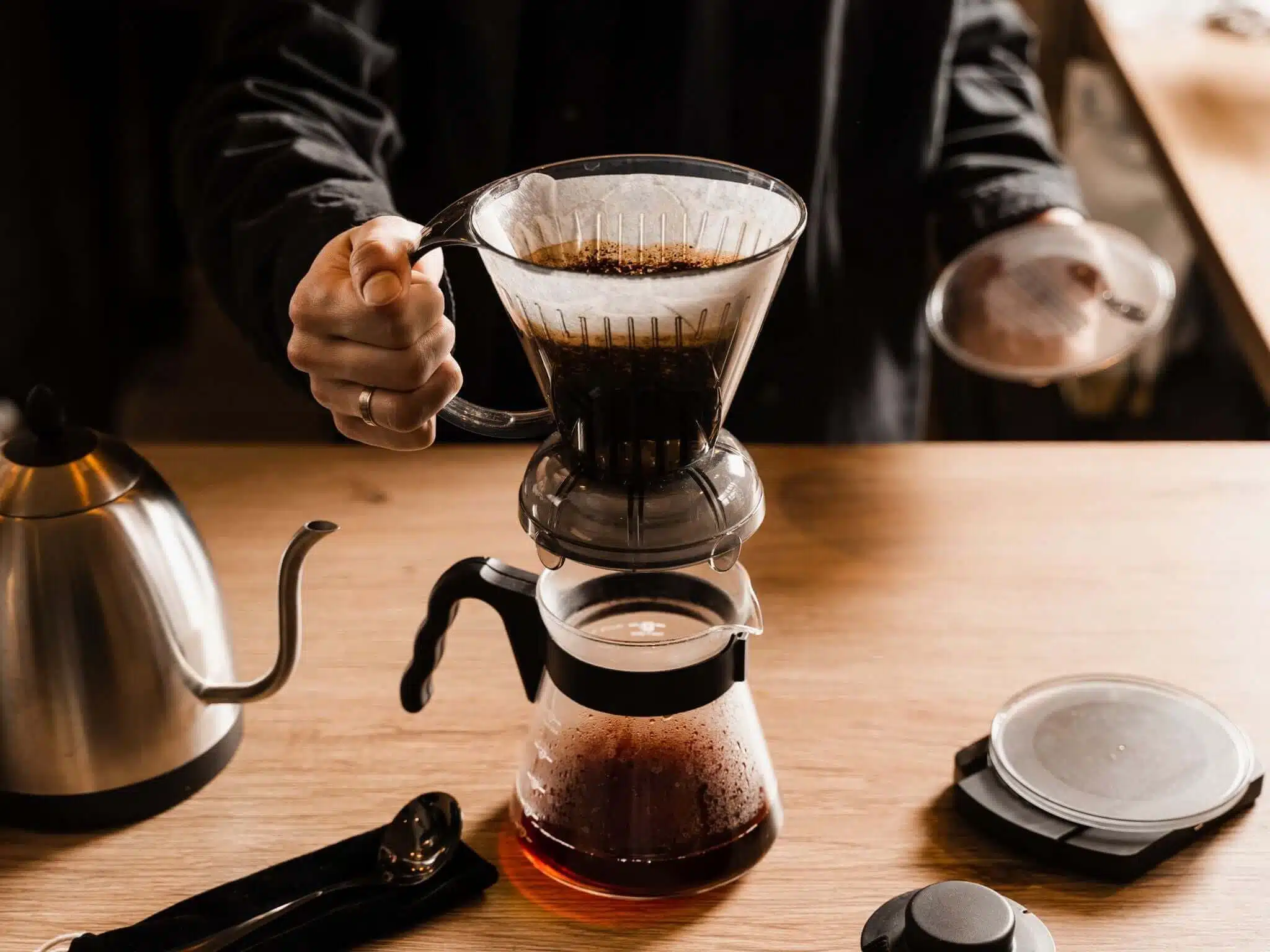
Common Mistakes to Avoid
Brewing the perfect cup of filter coffee requires finesse and attention to detail. Here are some common mistakes that enthusiasts often make, which you can easily avoid for a better brewing experience:
- Using Stale Coffee: Coffee loses its freshness quickly. Always opt for freshly roasted beans and store them properly to maintain their flavor.
- Incorrect Grind Size: The grind size significantly impacts extraction. For filter coffee, aim for a medium-coarse grind. Too fine, and it may lead to bitterness, while too coarse might under-extract flavors.
- Over or Under-Brewing: Timing is crucial; generally, aim for 4 to 6 minutes of brewing time. Over-brewing can result in a bitter taste, and under-brewing might leave it weak and watery.
- Ignoring Water Quality: The water you use matters. Filtered or bottled water is ideal. Avoid using chlorinated tap water as it can affect the coffee’s flavor.
- Not Measuring Ingredients: Precision is key in achieving a consistent cup. Use a scale to measure the coffee and water ratios; a common starting point is 1:15 (1 part coffee to 15 parts water).
By steering clear of these mistakes, you can elevate your filter coffee experience, ensuring each cup is a delightful blend of taste and aroma. Happy brewing!
Health Benefits of Filter Coffee
Filter coffee offers more than just a delightful caffeine kick; it brings an array of health benefits that can enhance your well-being. Here are some noteworthy advantages of enjoying this beloved beverage:
- Rich in Antioxidants: Filter coffee is packed with antioxidants, which help combat free radicals in the body. This can lead to reduced inflammation and lower the risk of chronic diseases.
- Lower Acidity: Compared to other brewing methods, filter coffee typically has a lower acidity level. This gentler profile can be easier on the stomach and may reduce acid reflux for some individuals.
- Heart Health: Moderate consumption of filter coffee has been linked to a lower risk of heart disease. The protective compounds in coffee, such as chlorogenic acids, contribute positively to heart functions.
- Enhanced Cognitive Function: The caffeine in filter coffee improves focus and enhances cognitive faculties. Regular consumption can help in preventing neurodegenerative diseases like Alzheimer’s and Parkinson’s.
- Mood Booster: Filter coffee can elevate your mood by stimulating the release of dopamine, promoting feelings of happiness and well-being.
Ultimately, filter coffee doesn’t just satisfy your taste buds; it also supports your health! So, why not brew yourself a cup and enjoy its benefits today?
Exploring Flavor Profiles
When you indulge in filter coffee, you embark on a delightful journey through a diverse range of flavors. Understanding these flavor profiles enhances your appreciation and helps you select the perfect cup. Here’s a closer look at what makes filter coffee so special:
Flavor Notes in Filter Coffee:
- Fruity: Many coffee beans boast vibrant notes of berries, citrus, or apples. A lightly roasted filter coffee often highlights these fruity flavors.
- Nutty: Some blends can present warm, comforting notes reminiscent of almonds or hazelnuts, adding a rich depth to your cup.
- Chocolatey: A medium roast filter coffee frequently unveils cocoa or chocolate undertones, making it an indulgent choice for chocolate lovers.
- Floral: Subtle floral notes can elevate a cup of filter coffee, offering a refreshing aromatic quality that tickles the senses.
- Spicy: Certain coffees may include hints of spice, such as cinnamon or clove, providing a warm and inviting taste.
Comparison of Flavor Profiles:
| Coffee Type | Flavor Notes | Roast Level |
|---|---|---|
| Ethiopian Beans | Fruity, Floral | Light |
| Colombian Beans | Nutty, Chocolatey | Medium |
| Sumatran Beans | Earthy, Spicy | Dark |
Experimenting with different beans and roasts significantly impacts the outcome of your filter coffee experience. So, why not explore these flavors and find your personal favorite? Your taste buds will thank you!
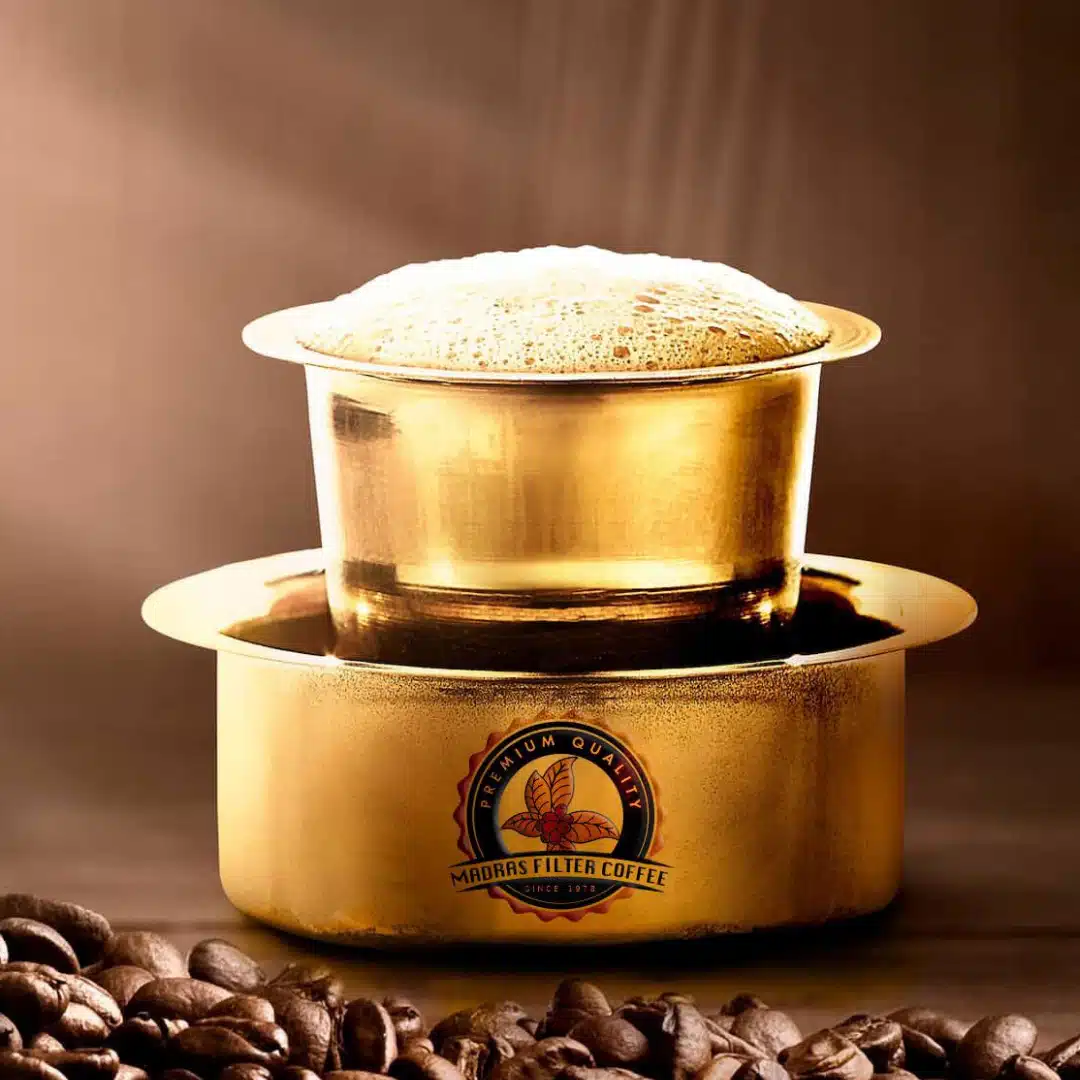
Conclusion: Why You Should Try Filter Coffee
In summary, filter coffee offers a delightful experience that stands out in the world of beverages. Whether you are a seasoned coffee aficionado or just exploring different brews, filter coffee has something to offer everyone. Here are a few compelling reasons to give it a try:
- Rich Flavor: Filter coffee delivers a smooth and robust flavor profile, showcasing the unique characteristics of each coffee bean. This method allows for excellent extraction, resulting in a delicious cup every time.
- Versatile Brewing: With various brewing methods, from traditional drip to modern pour-over styles, filter coffee can adapt to your preferences, making it easy to explore different tastes and intensities.
- Easy Preparation: Unlike espresso or other complicated brewing techniques, filter coffee is relatively simple to prepare. All you need is your favorite coffee beans, a filter, and hot water to create a consistent brew.
- Health Benefits: Recent studies suggest that filter coffee may have potential health benefits, such as reducing the risk of certain diseases and providing antioxidants.
By choosing filter coffee, you embark on a flavorful journey that invites experimentation and enjoyment. So grab your beans, brew a cup, and discover why filter coffee deserves a spot in your daily routine!
Frequently Asked Questions
What exactly is filter coffee?
Filter coffee is a method of brewing coffee that utilizes a filter to separate the coffee grounds from the brewed liquid. This technique typically involves pouring hot water over ground coffee beans, allowing the water to extract flavors as it passes through, resulting in a aromatic and rich cup of coffee. The filter can be made from various materials, including paper, cloth, or metal, which affects the taste and clarity of the final brew.
What equipment do I need to make filter coffee?
To prepare filter coffee, you’ll need a few essential items: freshly ground coffee beans, a filter (such as a paper or metal filter), a coffee maker or a pour-over dripper, and hot water. Additionally, having a kettle, a coffee scale, and a timer can enhance your brewing precision, allowing you to achieve the perfect balance of flavor. Depending on personal preferences, you might also want to have milk or sweeteners on hand.
How does filter coffee differ from other brewing methods?
Filter coffee differs from methods like espresso or French press in terms of brewing time, water temperature, and extraction method. While espresso uses high pressure to force water through finely ground coffee for a quick extraction, filter coffee relies on gravity, allowing for a longer brew time that extracts different flavor compounds. Additionally, filter coffee typically has a lighter body compared to the thicker, more concentrated taste of espresso, offering a smooth and clean flavor profile.
Can I use any type of coffee for filter coffee?
Yes, you can use various types of coffee beans for filter coffee! However, the flavor profile will vary depending on the roast level, origin, and grind size of the beans. Light roasts often yield bright and fruity flavors, while dark roasts provide a more robust and bitter taste. It’s best to experiment with different beans and roasting styles to find the blend that resonates most with your palate, ensuring a delightful filter coffee experience tailored to your preferences.
How should I store coffee beans for the best flavor?
To maintain the freshness and flavor of your coffee beans, store them in an airtight container, away from light, heat, and humidity. A cool, dark place like a pantry is ideal. Avoid storing beans in the refrigerator or freezer, as moisture can lead to staleness. It’s best to buy coffee beans in small batches and consume them within a few weeks of roasting to enjoy the full range of flavors when brewing your filter coffee.

